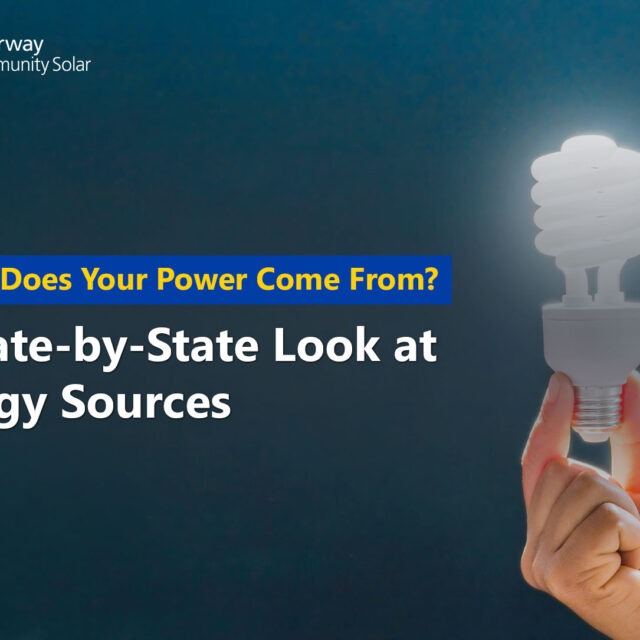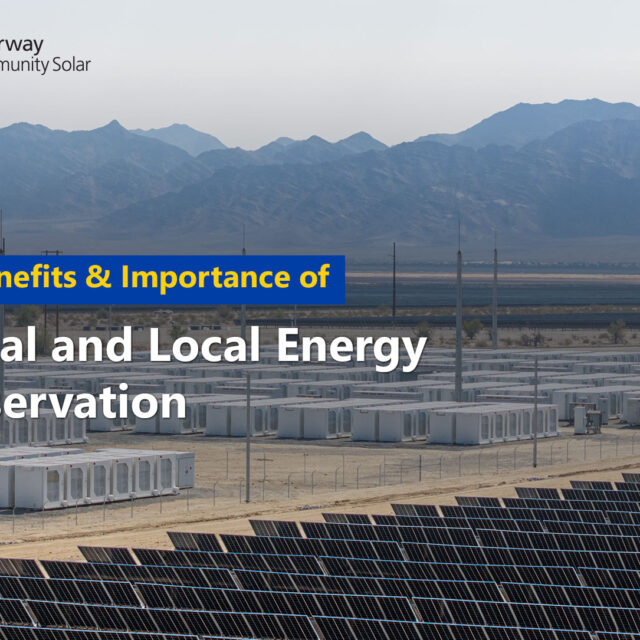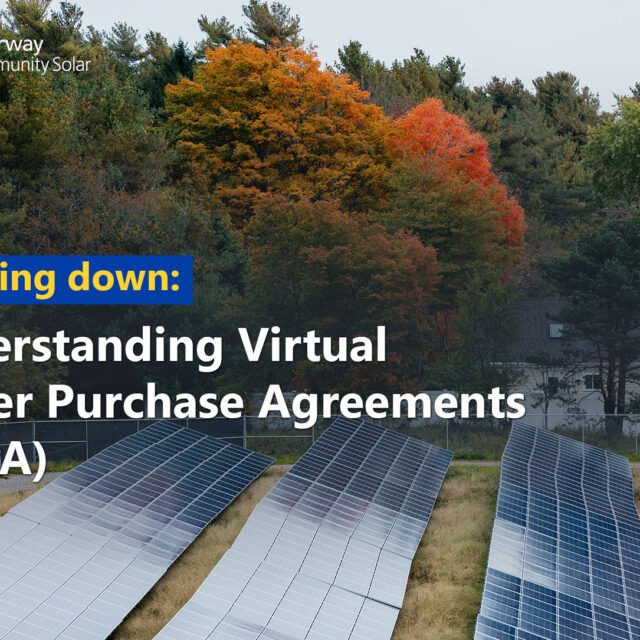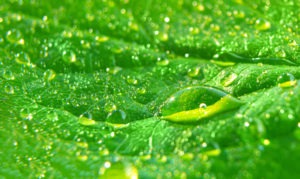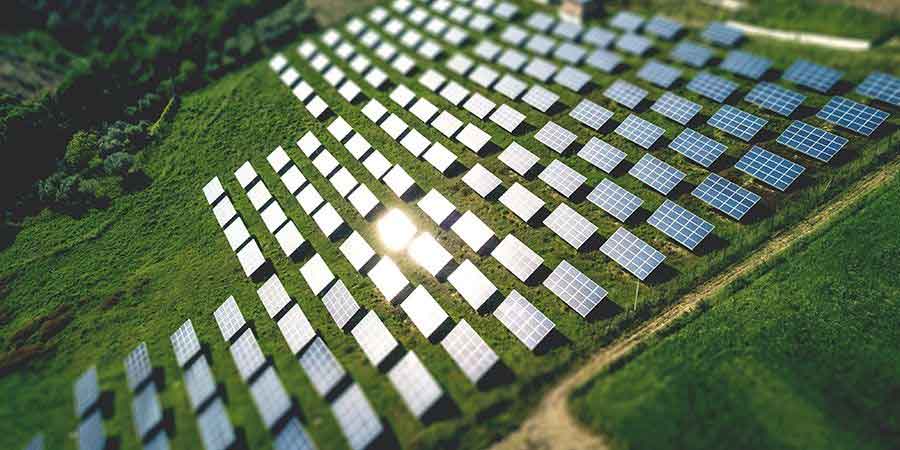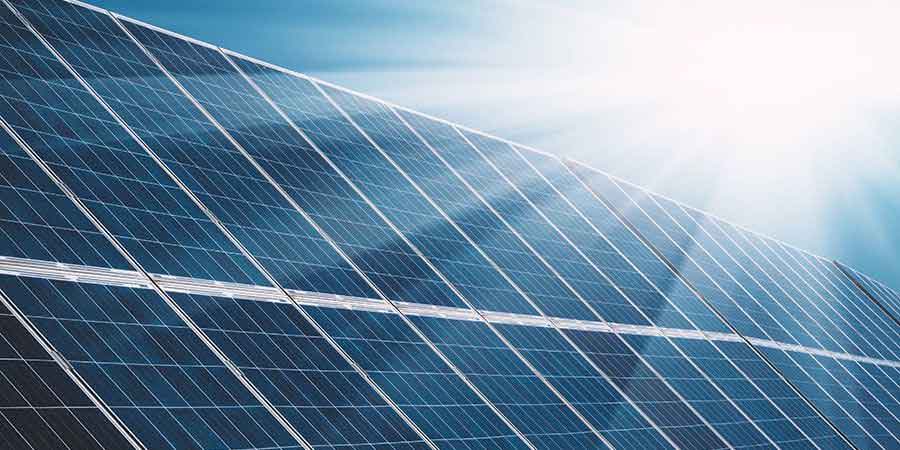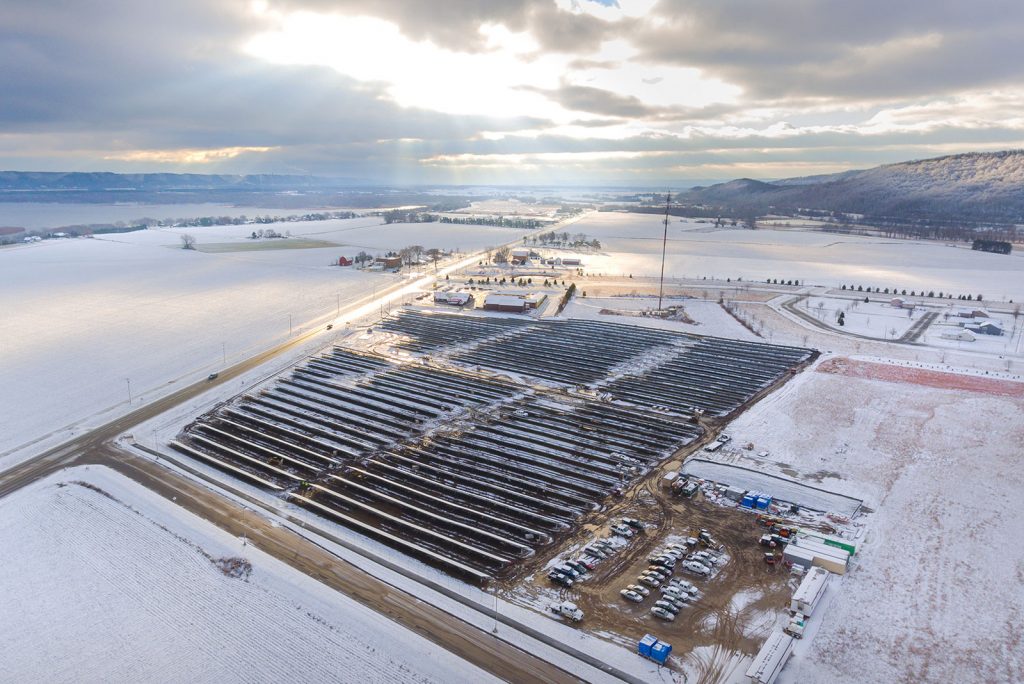
How Colder Temperature Impacts Solar Farms.
When you think of the winter season, you probably think of shorter days, gray skies, and snow more often than you think of the sun. And you may have even heard a common myth that solar panels do not generate solar power in freezing temperatures. Well, we can assure you that’s not true.
Can Solar Panels Produce Energy in Winter?
The simple answer is yes, solar panels do produce energy in the winter. In fact, cold temperatures can actually help solar production.
Let’s take a closer look at the relationship between solar cells and cold weather.
It’s a fact that solar cells need sunlight to produce solar energy, and during summer, solar panel production can be substantial. But in winter months, with shorter daylight hours and cloudier skies, can you count on solar panels and solar shingles to produce solar energy? The simple answer is yes. But did you know that the cold temperatures can actually help solar production? Let’s take a closer look at how solar panels work during wintertime.
Solar Cells Like the Cold Weather
It’s a fact that solar cells need sunlight to produce solar energy, and during summer, solar panel production can be substantial. But in winter months, with shorter daylight hours and cloudier skies, you can still count on solar panels and solar shingles to produce renewable energy.
Solar cells, also referred to as photovoltaic or PV cells, convert sunlight directly into electricity. PV derives its name from the actual process of light conversion from photons to electrons that creates electrical voltage. Because solar cells convert sunlight (rather than the sun’s heat) into electricity, cold winter days do not impact production. Colder temperatures can actually improve the output of solar cells.
Think of it like exercising. If you go for a run on a hot summer day, you’ll tire out more easily due to the heat. If you instead ran in cooler weather, you’d be able to run farther and more efficiently.
The same thing happens when solar panels are performing on a hot, sunny day versus a cold, sunny day. If the temperature is too hot, it can hurt the performance of the solar cells and reduce the output of a PV solar panel system. The colder temperatures combined with the sun are actually ideal for solar panel performance. The cold weather actually increases module efficiency, converting sunlight to energy better as it gets colder.
Impact of Rain & Cloud Cover on Solar Energy Output
Rain and cloud cover can reduce solar panel production. When it rains, or there are clouds, the sunlight is blocked from the PV cells. Low clouds can block sunlight, which results in less solar energy.
However, certain cloudy circumstances can result in more light reaching solar panels. This phenomenon is called “the Albedo Effect”, which occurs when clouds, rain, and snow reflect the sun back onto the solar array. This can boost production in certain climates, which is not exactly intuitive.
Solar Panels and Snow
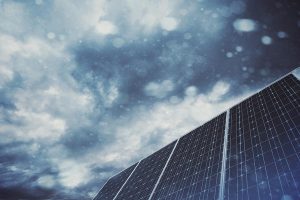 Similarly, white snow can have a positive impact on solar production. The ground snow itself can reflect sunlight on top of the solar panels and often helps improve solar PV performance.
Similarly, white snow can have a positive impact on solar production. The ground snow itself can reflect sunlight on top of the solar panels and often helps improve solar PV performance.
Of course, snow-covered panels can hurt solar cell production. For example, if your home’s rooftop solar panels are completely covered in snow drifts, they won’t produce energy. Instead of waiting until the snow melts, you can clear off the panels. This can be tricky with rooftop solar panels. To avoid damaging your panels while cleaning them, do not rake or scrape the snow off of the panels. Instead, hose the snow off or wait until the sun melts it, allowing it to slide off of the panels and your roof. The safest method is to hire someone to clean the snow. A crew can secure safety ropes and perform other safety measures while on top of your roof.
Removing Solar Panel Maintenance from the Equation
Conversely, a benefit of Clearway Community Solar is that rooftop solar panel installation, and any associated panel maintenance, is removed from the equation for homeowners.
With our Community Solar program, dedicated teams of trained local professionals manage the upkeep of the panels year-round, at no additional cost. This work brings jobs into the communities and helps the local economy. The dangers of climbing on your roof, and the expense of hiring a crew, is something you don’t have to worry about when you enroll in the program.
Additionally, Clearway Community Solar utilizes industrial-grade panels that are fully rated and tested to operate in the climatic conditions they are used. Industrial-grade solar panels are designed to handle extreme weather conditions and can bear a certain amount of weight. For instance, snowfall should not damage solar panels because they are tested to withstand freezing temperatures and heavy amounts of snow.
Prepared for Any Climate Condition
Beyond the weight of snow, our panels are tested for freezing temperatures as well. When the temperature drops below freezing, any water that has accumulated on solar panels can freeze. When that happens, the frozen water expands and could potentially cause cracks in the solar cells.
It’s possible for panels to fracture due to shifting hot/cold temperatures, which can crack solar cells, disturb the soldered joints, and damage the inner components over time. Imagine if you had a crack in one of your rooftop panels after the upfront investment you made!
With Clearway Community Solar, smart equipment choices are made to ensure that any modules, inverters, and racking used are well-suited to the environment, with projects designed around their specific location and climate conditions.
Reduce Your Winter To-Do List with Clearway Community Solar
Just as your home’s energy use varies with the season, so can solar production. When there is less sunlight, there will be less solar energy generated. However, the cold temperatures can provide a boost, and you can still ensure there will still be output.
Most importantly, with a Clearway Community Solar option, your winter to do list is simplified. Climb on top of the roof safely to hang those holiday lights, and leave solar panel maintenance up to our Community Solar teams.
To learn more about Clearway Community Solar and how it can benefit you this winter, contact us for more information.
FAQs
Is solar power weaker in winter weather?
Solar energy can weaken in winter due to less sunlight and daylight hours. In colder climates, however, the cold temperatures can help boost solar production as panels operate more efficiently at lower temperatures.
Can solar panels freeze?
Yes, solar panels can freeze depending on the environmental conditions of the area. Any water accumulating on solar panels can freeze and expand when temperatures drop below freezing, potentially causing cell cracks.
Do solar panels work in the winter?
Yes, solar panels will still work in the winter months. Although the output may be less due to fewer hours of daylight and potentially cloud cover, solar energy production can still occur during this time.
Do solar panels work in extreme cold?
Yes, solar panels can still function in extremely cold weather. Industrial-grade solar panels are designed to handle cold climates and the most extreme temperatures and conditions.
Does snow stop solar panels?
No, heavy snowfall does not necessarily stop solar panels from working. Industrial-grade solar panels are tested to withstand freezing temperatures and heavy snow. Therefore, the weight of a layer of snow should not cause any damage to your solar panel system.
Does ice damage solar panels?
Ice has the potential to damage solar panels if it expands and causes cracks in the cells. This can be prevented by investing in well-suited equipment for the environment.
Can I clean solar panels in the winter?
Yes, solar panels can be cleaned in the winter months. However, it is important to note that if temperatures are below freezing, you should only use a soft brush or squeegee and warm (not hot) water to remove snow and ice from your panels.
Do I need to maintain my solar panels during winter?
Yes, it is important to monitor your solar panel system during the winter months. This involves checking for debris build-up and snow accumulation, which can reduce your solar energy production.
Are solar panels okay in the rain?
Yes, solar panels are okay in the rain. Rain can help clean off any dirt or debris that may have built up on your solar panel system over time. Just be sure to avoid cleaning them during a storm and with high-pressure water, as this could cause damage.
How much do clouds affect solar panels?
Clouds can reduce the amount of direct sunlight that reaches your solar panels, resulting in a decrease in solar energy production. However, during partly cloudy days, there may still be enough sunlight to generate a small amount of electricity from your system.
